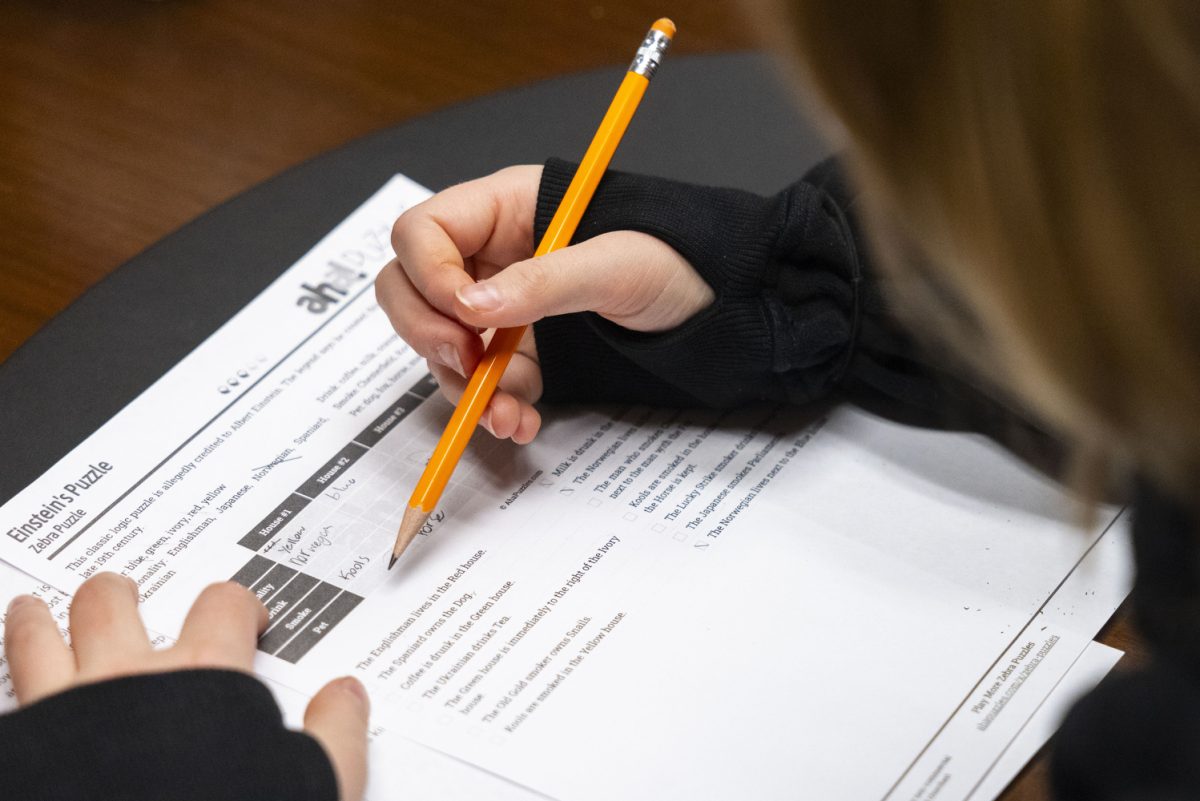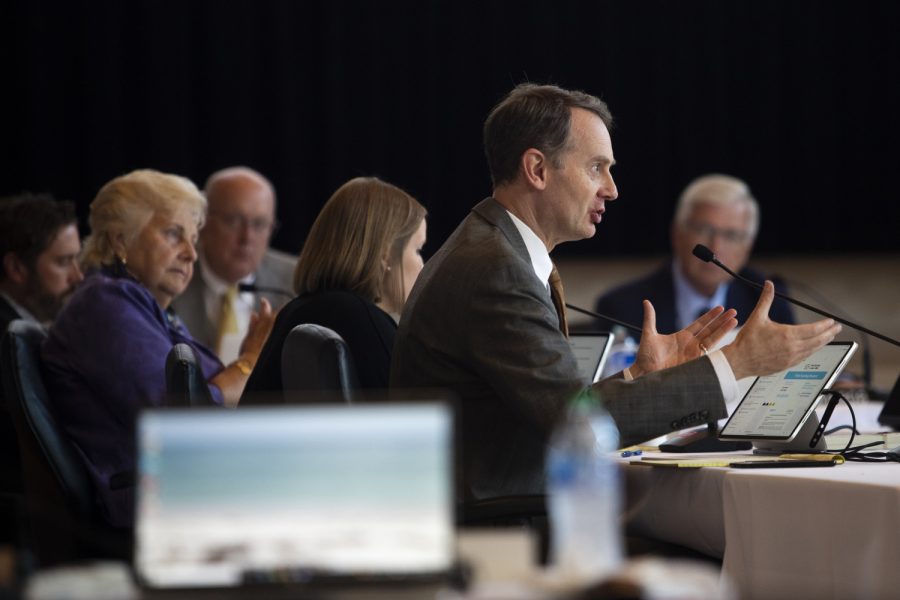With nearly 60 percent of University of Iowa students graduating with debt, the UI Office of Student Financial Aid has launched a financial-aid literacy program to help students understand the complexities of paying for college.
The Financial-Aid Office began advertising last week for its new literacy program. Students can sign up for an appointment to speak with an expert on any questions they may have about their loans, the FAFSA, payment plans, and anything else related to financial aid.
“Paying for college is a concern [the] UI Office of Student Financial Aid staff hears on a daily basis from students and parents,” Sara Harrington, an assistant director of UI Financial Aid, wrote in an email. “Often, students enroll at UI without a plan in place to pay for their educational expenses. Our goal is to help students understand how to budget and plan for their futures.”
The Financial-Aid Office received an $119,898 grant from the Provost’s Office of the to begin the program. The grant will primarily cover the salaries and benefits of the two graduate students who were hired to run it.
“We’ve been able to sort of go through all the sort of facets of financial aid,” said Sarah Lobb, one of two graduate students hired for the program.
Funding for this program began in September, and Lobb and colleague Nate Bauer spent most of the previous semester educating themselves on the many aspects of financial aid.
“All of my previous experience has come from being on the other side of the table and having to borrow student loans,” Bauer said.
Bauer said he took out loans while he was an undergraduate, so he can see how the program will help students. While Lobb didn’t take out loans as an undergraduate student, she said she could relate based on other financial experiences.
“I can relate to the feeling of not knowing what things mean,” she said. “I can understand the nervousness and the anxiety around the money.”
The UI Student Government also offers a program to help students manage money, but UISG President Nic Pottebaum said the programs are very different.
“I really see the Financial-Aid Office doing something a little more proactive,” he said. “[It] provides resources and support to navigate the waters of student financial aid.”
Pottebaum said the UISG Student Credit and Money Management program provides a broader scope of information about budgeting not only to pay back loans but also to manage money in everyday life.
Mark Kantrowitz, the publisher of FinAid and FastWeb, said financial-aid literacy programs are becoming more common among universities because when students better understand their financial aid, schools tend to have lower default rates.
“I’ve had a lot of experiences [which] suggest that students really don’t understand what they’re getting into when they’re borrowing money,” he said. “The primary way in which it affects a college is if students over-borrow, they’re more likely to default. Financial literacy is a pretty basic skill that students need.”
Kantrowitz even argues that financial-aid literacy should be taught on the high-school level, and some UI students agree.
“It’s not something you’re taught before you come to college,” UI junior Elizabeth Carrasquillo said. “I think especially senior year when everyone is thinking about where to go to school, they should teach it then [because] college is on everyone’s mind.”
UI senior Chris Cheney, who had to manage his financial aid on his own while at the UI, said a program like this would have made his experience smoother.
“I think it would’ve been helpful because I ended up taking out too little of loans, which was problematic, but at the same time, you don’t want to take out more than you need because you have to pay interest on it,” he said. “Maybe if I was more educated, it wouldn’t have been as hard as I made it out to be.”






